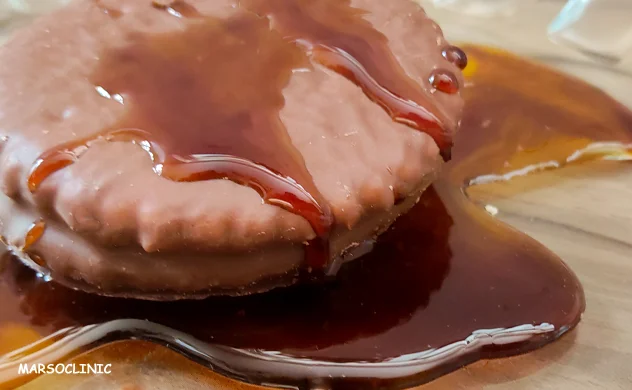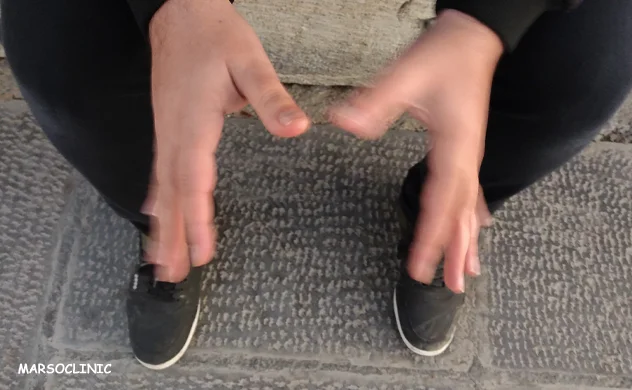Cream cake or donut is tempting; eating a sweet dessert is enjoyable but may accompany weakness and lightheadedness later.
Receive hypoglycemia, or postprandial hypoglycemia, sometimes called sugar crash, is caused by a sudden and inappropriate drop in blood sugar and usually occurs within the first four hours after eating a sugary meal.
Join us if you are worried about your body shaking after eating sugar.
In the following, our medical specialists will answer your common questions about postprandial hypoglycemia, headaches, and body tremors after eating sugar and sugary foods and sugar crash.
What you will read next:
Causes for feeling shaky after eating sugar
The primary cause of feeling shaky after sugar is the inappropriate and robust response of insulin secretion from the pancreas and a drop in blood sugar level, respectively. Some other causes may produce the same manifestations by the exact mechanism or in different ways.
They include:
- Some medications used to control diabetes
- Stress and anxiety
- Have a history of stomach surgery or bypass surgery
- Some rare tumor
What is Receive Hypoglycemia or sugar crash?
Conditions that occur following a drop in blood sugar within four hours of eating a sugary meal are called postprandial hypoglycemia. These conditions should be differentiated from hypoglycemia following starvation and fasting.
Some researchers have linked this sugar crush to the content of your meal and the time it takes to digest it.
If you have recurrent sugar crashes and do not have diabetes, we recommend you visit your doctor. You may need to change your diet or start special treatment under the supervision of a doctor.
The mechanism of this condition is inappropriate insulin secretion in response to sugar intake. Usually, insulin is secreted to control blood sugar levels after a meal.
But in some individuals, this regulation capability fails, and the blood sugar level falls as low as hypoglycemia symptoms begin.
This condition can be seen in those with or without a history of diabetes.
Types of Hypoglycemia
One with diabetes can have hypoglycemic attacks, but in someone who does not have diabetes, hypoglycemia can occur in two ways:
- Fasting Hypoglycemia
- Receive hypoglycemia or postprandial hypoglycemia or Sugar crush
Recurrence of sugar crashes is infrequent in people without diabetes, and researchers believe that most cases with recurrent sugarcane attacks either have diabetes or are pre-diabetic.
Hypoglycemia can also occur in a person without diabetes. A drop in blood sugar is called hypoglycemia. Glucose is the primary fuel of our body. Eating only sweets is not the only way to increase blood sugar.
Carbohydrates such as pasta, bread, pasta, fruits, and vegetables are also high in sugar, and their digestion produces glucose.
Causes of Sugar Crash
The leading causes of crashed sugar can be mentioned as follows:
- Being in pre-diabetic stages:
A fasting blood sugar range between 101-116 mg/dl is considered a pre-diabetic state. In this stage, the blood glucose regulation fails to compensate for daily sugar intake. Inappropriate insulin secretion may lead to feeling shaky after sugar intake.
- Having a history of gastric surgery:
Sometimes after gastric surgery, the food eaten does not take enough time to digest in the stomach, so the undigested food quickly leaves the stomach and suddenly enters the small intestine. The sudden entry of unprocessed sugar into the small intestine may result in a high amount of insulin secretion that can cause hypoglycemic attacks following eating high contained sugar meals.
- Some kinds of enzyme deficiencies:
This is the rarest cause of hypoglycemia after eating. Stomach enzymes are required for digestion. In some people, deficiency of stomach enzymes causes incomplete digestion and, therefore, hypoglycemia.
- Insulinoma:
Insulinoma is a rare pancreas gland tumor that produces and secrets inappropriate insulin that may lead to a sudden drop in blood glucose and feeling shaky after glucose intake.
What are the symptoms of sugar crash or hypoglycemia after eating?
A cascade of variable problems happens as blood glucose levels drop because of inappropriate insulin secretion or other reasons following sugar intake. Some of the most common hypoglycemic symptoms are as below:
- Body shaking and tremor
- Anxiety
- Uneasiness
- Sweating
- Body tremors after eating sweets
- Sweating
- Feeling hungry
- lightheadedness
- dizziness
- sleepy
- Confusion
- Fainting
You can experience one or more of these symptoms after eating just 15 grams of carbohydrates such as bread, pasta, and sweeties.
Diagnosis
Your clinical signs of headache, dizziness, weakness, and tremors after eating meals and sweets alone may indicate post-meal hypoglycemia.
For further investigation of recurrent attacks of hypoglycemia, your doctor will order several blood tests, depending on the condition, some of which include:
- Measurement of blood sugar with digital glucometer:
True hypoglycemia is when the blood sugar level is equal to or less than 70 mg / dL.
- Oral Glucose Tolerance Test (OGTT):
You will be asked to drink some sugar and test for blood sugar level
- Mix Mill Tolerance Test (MMTT):
You will be asked to eat a combination of fat, protein, and glucose. The blood sugar test is performed before and after taking the proper meal.
If your doctor suspects another reason for your problem, they will order more specialized tests to check for diabetes, pre-diabetes, or other causes. More specialized tests for measuring blood insulin may also be required.
Treatment
Most cases do not require special treatment. If you have another factor, such as gastric surgery, a special diet as a treatment will be recommended by your doctor.
Your doctor will probably recommend the following methods to control and treat sugar crashes according to your condition:
- Eat small and light meals and increase the number of times you eat
- Avoid eating foods high in glucose, such as:
- White flour
- Pasta
- Bread
- Dried fruits
- Processed foods
When should I see a doctor?
“Feeling shaky after sugar intake” is a must-see sign, and it is advised to consult with a medical expert.
If you suffer from a sugar crash and if you encounter the following conditions, you must see a doctor:
- If you have a history of surgery
- If you have wounds that heal late
- Increase in water drink recently
- Increase in urination frequencies
- If you still have recurrent attacks of hypoglycemia despite controlling your diet
Complications
In whom that diabetes mellitus is diagnosed as the causative factor for the feeling shaky after sugar intake, poor control of diabetes will lead to many complications and problems such as the following:
- Heart disease
- Kidney disease
- Oral problems
- Leg problems
- Nerve damage
- Heart attacks lead to death
- Occurrence of fatal brain strokes


